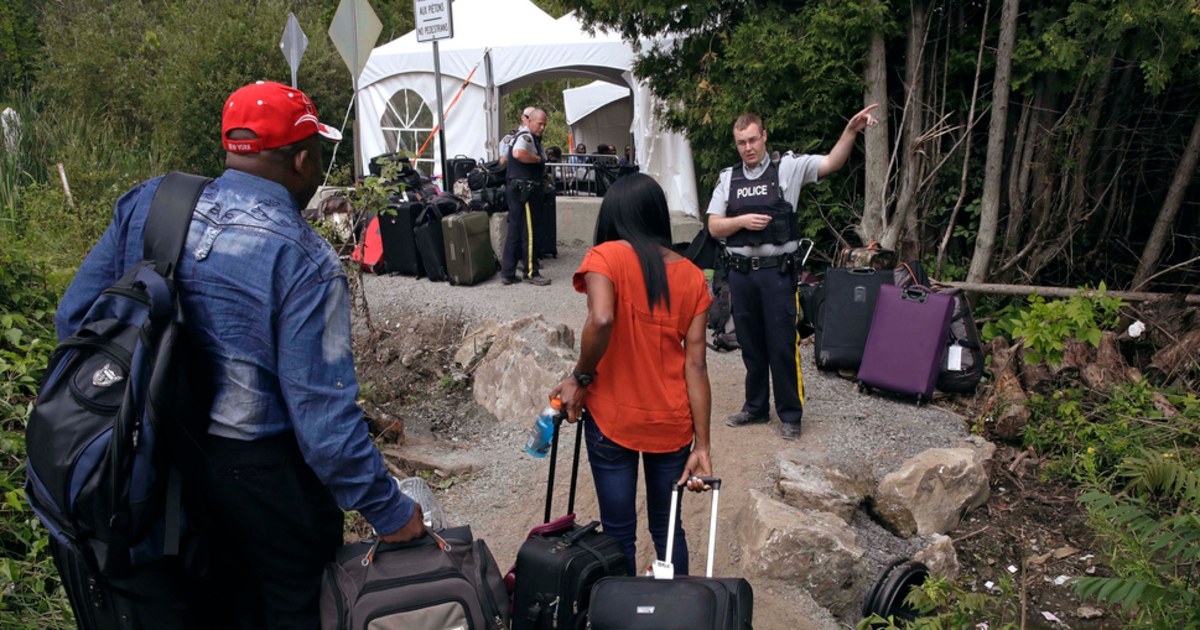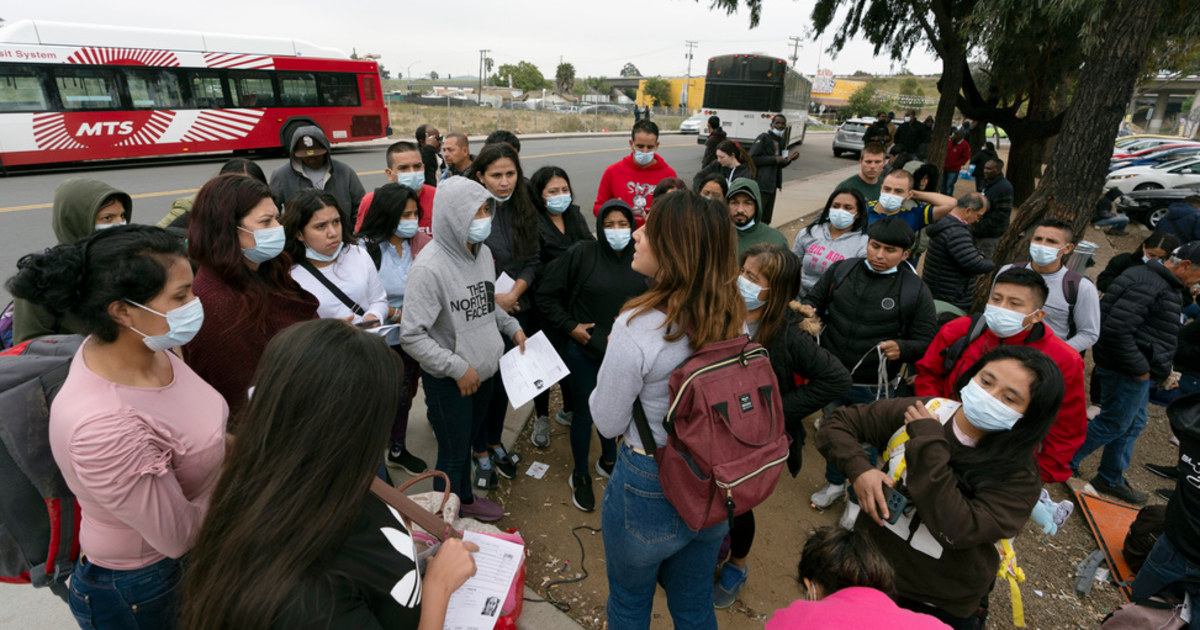Asylum applications in Mexico have skyrocketed to levels never seen before.
More than 131,400 foreigners began the process to take refuge in Mexican territory in 2021, three times more than a year earlier and a historical record for the country, according to the United Nations High Commissioner for Refugees (UNHCR).
These figures put Mexico as the third country with the most applicants in the world in that period, only behind the United States and Germany, according to the agency.
The unprecedented flow of asylum seekers has grown hand in hand with the massive influx of Haitian citizens.
For the first time, Haiti leads the exodus to Mexico: almost four out of ten people who asked to stay are from the Caribbean country, devastated by political instability, natural disasters, violence and misery.
More than 51,800 Haitians arrived last year.
The number grows even more, up to 48% of the total applications, if second-generation Haitians are considered, who were born in Chile and Brazil after their parents fled earlier and later decided to settle in Mexican lands.
Requesters from Honduras were the second largest group, accounting for 28% of all requests.
People who left Cuba are the third largest group: 8,315 Cubans applied to stay in Mexico, 6% of all applicants.
The Cuban exile has grown little by little in Mexico after the government of Barack Obama ended the
wet foot, dry foot
policy in 2017 , which allowed emigrants from the island to stay in the United States if they managed to set foot in its territory, not so to those who were detained as they passed through the dangerous sea route between Cuba and Florida.
To avoid the risk of capture and shipwreck, some chose to reach Mexico first, but they did not usually stay.
Applicants from El Salvador and Venezuela each made up 5% of applicants, just over 6,000 people in the last year.
The more than 131,400 applications this year far exceed the records of 2020 (41,300), 2019 (70,300) and 2018 (29,600).
Seven out of ten requests are made in Tapachula, the largest gateway on the border with Guatemala.
Mexico, which shares a border of more than 2,000 kilometers with the United States, has established itself as a country that expels and transits hundreds of thousands of migrants, refugees and asylum seekers every year.
Acnur data confirm, however, that it is not only a transit territory, but also receives more and more people who leave their places of origin for economic, political or security reasons.
“In 2021, Mexico simultaneously suffered three different pressures in terms of population movements: in the south, in the north, and internal displacement,” the United Nations agency points out in its latest report.
UNHCR notes that the sudden arrival of foreigners has overwhelmed Mexico's reception system.
Marcelo Ebrard, the head of Foreign Relations, admitted last December that "more budget and more personnel" were needed for the Mexican Commission for Refugee Aid.
The covid-19 pandemic closed the doors of the United States to asylum seekers from all over the world and, despite the health crisis, the flows of people to the north have not stopped.
The US border patrol apprehended more than 1.6 million people without documents between October 2020 and September 2021, the highest ever for a 12-month period.
Washington has eliminated the mandatory use of masks, has resumed mass events and has lifted the bulk of restrictions to revive its economy.
However, Title 42, the measure launched by the Donald Trump Administration to stop the arrival of foreigners under the pretext of containing the spread of the coronavirus, has remained in force.
The only exception the White House has made has been for refugees from the war in Ukraine.
Mexico has seen how some 12,000 Ukrainians have arrived in the country after the Joe Biden government promised at the end of March to receive more than 100,000 Ukrainians.
The Ukrainian diaspora does not usually spend more than a week in Mexico and their requests are processed expressly to enter the United States for a couple of weeks.
Preferential treatment of Ukrainians has raised tensions with groups of other nationalities, who have been waiting in Mexico for months.
"It's unfair, we all deserve an opportunity," claimed a few days ago Juan Mártir, a 42-year-old asylum seeker from Honduras, who has been in Tijuana for more than eight months.
"In all countries there are problems, but only our procedures are stopped, that leaves you thinking," added Haitian Jean Rodinei, a thirtysomething who lives in a Christian shelter in
Little Haiti
, an irregular migrant settlement in that border city.
Starting this Monday, United for Ukraine comes into force, a program that limits express crossing for Ukrainians and forces them to start their process digitally.
Facing the bottleneck, Mexico has become an alternative for those who give up or while their asylum process is resolved in US territory.
It has not been easy.
In recent months, the paralysis in the United States has translated into episodes of the collapse of the Mexican reception system, threats of caravans of Haitians and Central Americans, and violence.
The sights are set on May 23, when the 42nd title is expected to finally be lifted. That will open the doors of the United States after two years of blockade, but will add pressure to the immigration infrastructure of Mexico, with whom they are stranded. for months and who will arrive to seek a new life on the other side of the border.
subscribe here
to the
newsletter
of EL PAÍS México and receive all the informative keys of the current affairs of this country


/cloudfront-eu-central-1.images.arcpublishing.com/prisa/G4OEMXTF6RR2AKIQQXRTVTF37U.jpg)






